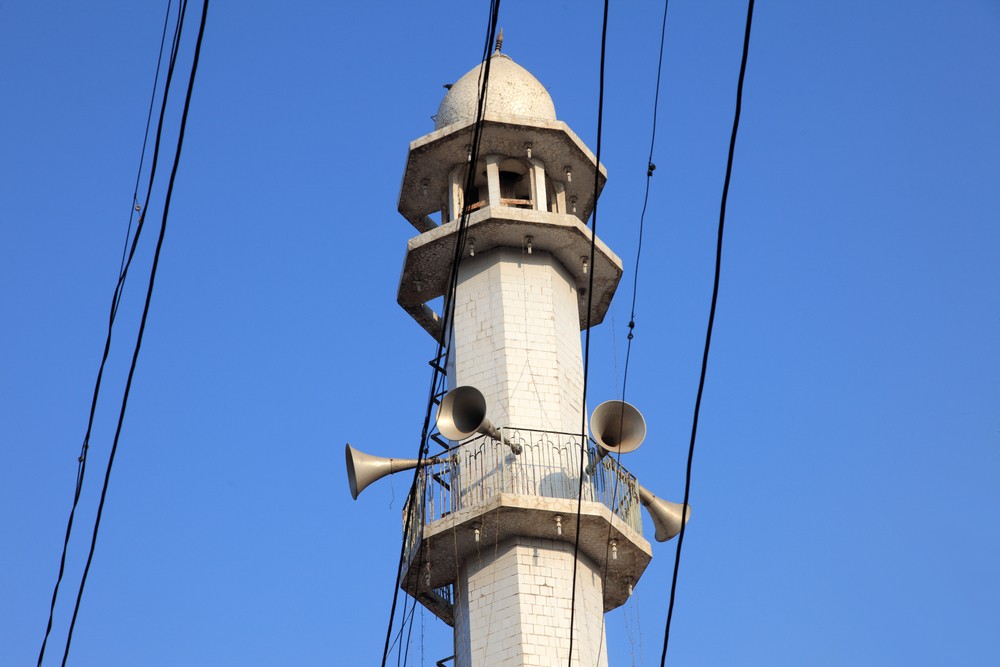Popular Reads
Top Results
Can't find what you're looking for?
View all search resultsPopular Reads
Top Results
Can't find what you're looking for?
View all search resultsPracticing Muslims wary of hate-filled Friday sermons
Change text size
Gift Premium Articles
to Anyone
H
eickel Alkatiri, an assistant manager at a tobacco firm, said he was now reluctant to attend Friday prayers at the mosque near his house in Duren Tiga, South Jakarta. He said he looked for soothing sermons about Islamic values, but what he got was nothing more than hate speech.
“I’ve heard preachers spread inaccurate teachings about jihad, saying that non-believers of Islam can be killed because they are all infidels,” Heickel said on Friday.
Muhammad Hafiizh Riyadi has a similar problem. When he attended a mosque in Pondok Pinang, South Jakarta, recently, a preacher said that voting for non-Muslim leaders would be a sin and those who did so could be regarded as infidels.
“Such sermons can be misleading, especially for some people who just accept them without filtering what they hear. In my view, sermons should spread greater love, instead of telling us what’s right or wrong about other religions,” the freelance photographer said.
Heickel and Muhammad are two of many practicing Muslims who have complained about the content of Friday sermons and are now looking for mosques with preachers who refrain from talking politics and spreading hate.
The government is aware of the problem and is now looking for ways to resolve it.
“Many people have told us that occasionally in several mosques, the preachers forget to provide religious advice, and instead disparage other groups, which is the opposite of providing advice,” Religious Affairs Minister Lukman Hakim Saifuddin said recently.
The minister said he wanted to ensure that preachers giving Friday sermons were competent and stuck to their roles as clerics. The ministry, he said, was planning to cooperate with Islamic organizations to “standardize” preachers to ensure they have full understanding about spreading positive messages during Friday prayers.
The plan, however, immediately sparked controversy, forcing Lukman to clarify his intentions.
“This is not government intervention,” Lukman said, adding that it was up to Islamic organizations to decide whether standardization, including certification and more comprehensive training, development, coaching and supervision for preachers, needed to be implemented.
“It’s the domain of the ulemas to determine the standards of competency for preachers as it is not within the government’s remit. We are not going to take it over from them,” he said.
Lukman said he would talk with the Indonesian Ulema Council (MUI), Nahdlatul Ulama (NU), Muhammadiyah, and other Islamic organizations about the plan. “The government only facilitates public aspirations [...] This is not solely our idea as we only respond to those who want more regulation and improvements in the matter,” he added.
The proposal has received a mixed response from Islamic organizations.
Muhammadiyah, the secondlargest Islamic organization, is skeptical about it. The organization’s central board secretary, Abdul Mu’ti, said the government should not single out Islam as radical teachings also existed in other religions.
He also questioned whether it was even possible to determine the criteria for standardization as Muslims had different views, much less supervise its implementation.
NU, the country’s largest Islamic organization, welcomed the proposal, highlighting the importance of preachers spreading peaceful Islamic values and encouraging Muslims to be kind and tolerant in a pluralist country.
“However, it should be kept in mind that standardization would not limit the spread of Islamic preaching or bring back uniformity like in the New Order era, but would instead be an effort to educate preachers,” NU deputy secretary-general Imam Pituduh said.
Indonesian Mosque Council (DMI) executive Natsir Zubaidi said while standardization would be for ulemas to decide, the council would encourage mosque managers to actively engage with congregations in the selection of preachers so they could promote Islamic values that fit properly with the situation of the local community.










